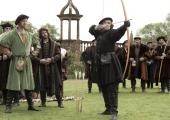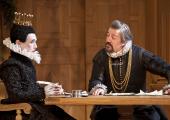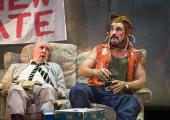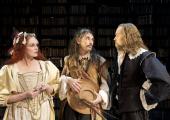For weeks and weeks, the BBC has been borrowing Anne Boleyn’s tactic of seduction. Henry VIII was vouchsafed occasional access to his future bride’s breasts, but no more until she was queen. It’s felt rather like that being fed Wolf Hall trailers for the past few weeks: teasing snippets of promised treasure, but there has been no way of knowing precisely what goodies lay in wait under the skirts. Has it been worth the anticipation?
In a word, yes. And for one overpowering reason: Mark Rylance, the complete actor. This is his first return to television in more than a decade. For all his glorious capacity to monster a stage as Johnny Rooster Byron or Richard III, as Thomas Cromwell he travels far in the other direction to play a puppeteer who does little but watch and listen and, above all, think. You can all but watch the cogs whirring, the butter not melting in his mouth as he plots his rise from the bottom of the heap. Television drama has rarely supplied such a hypnotic spectacle.
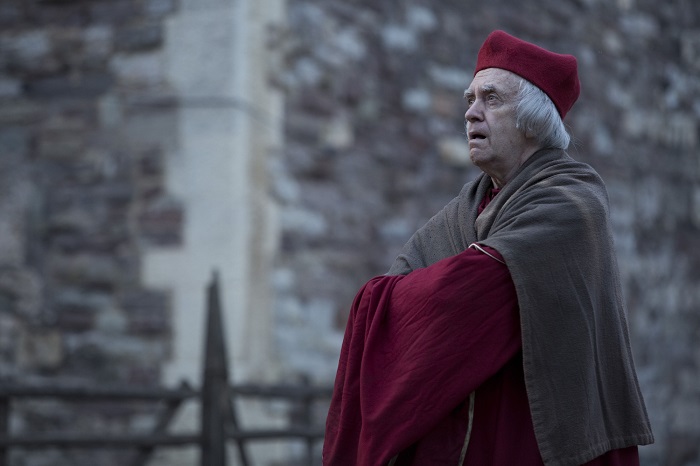 Where occasion demands Rylance's Cromwell can show a different side: he swears at ambassadors, is stern with Protestants, plays the loving paterfamilias at home and, in the showdown held back until the climax of the episode, even boldly faces down Damian Lewis’s Henry VIII. But above all he is a prowling, dead-eyed cardsharp. Rylance’s Cromwell is first glimpsed whispering an inaudible legal casuistry into the ear of Jonathan Pryce’s doomed Cardinal Wolsey (pictured). It’s an apt introduction: here is a man who will move mountains behind the arras, out of earshot, in the margins. “Never mind who that is,” said Wolsey. “He’s nobody.”
Where occasion demands Rylance's Cromwell can show a different side: he swears at ambassadors, is stern with Protestants, plays the loving paterfamilias at home and, in the showdown held back until the climax of the episode, even boldly faces down Damian Lewis’s Henry VIII. But above all he is a prowling, dead-eyed cardsharp. Rylance’s Cromwell is first glimpsed whispering an inaudible legal casuistry into the ear of Jonathan Pryce’s doomed Cardinal Wolsey (pictured). It’s an apt introduction: here is a man who will move mountains behind the arras, out of earshot, in the margins. “Never mind who that is,” said Wolsey. “He’s nobody.”
Some nobody. Wolf Hall reunites Rylance with Peter Kosminsky, who directed him as dodgy dossier fallguy David Kelly in The Government Inspector. Much of Kosminsky's career has been in investigative documentary/drama, shining a torch into the darker places of public policy, and he feels very much at home in the world of Tudor power plays. In his royal romantics he has two more actors who know his meticulous methodology from previous collaborations: Damian Lewis was in Warriors (1999) and Claire Foy (pictured below) in The Promise (2011). For Kosminsky, emotional truth rises out of the facts. So when their set-to scenes with Cromwell came along, both felt rooted in actuality: here, you sense, are characters who, unlike us, haven’t a clue what’s going to happen next. So there’s everything to play for.
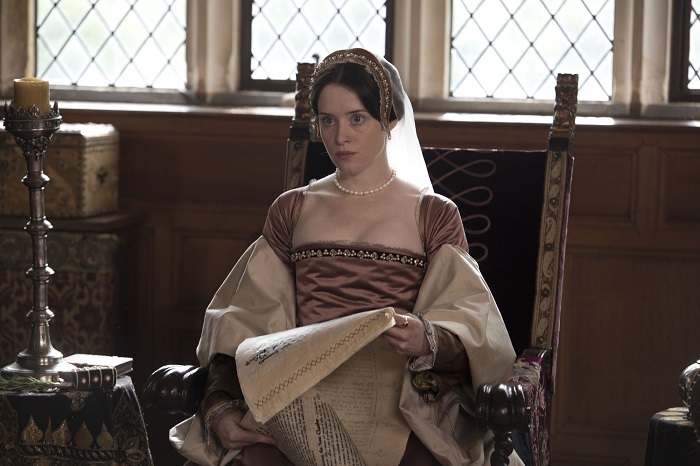 The plot, for those who have somehow dodged Mantel and countless other versions of the birth of the Church of England, began with the downfall of Wolsey. The cardinal had failed to secure a papal annulment of the king’s first marriage. Cromwell thus entered his service at the wrong moment – even the house musician had jumped ship to play for Anne Boleyn. Things were no better at home: the plague claimed his wife (Natasha Little, a bit modern) and two of his children, rendering him paterfamilias of a much reduced household. And yet he used the patronage of the Cardinal to make himself known – and potentially indispensable - to both Anne and Henry.
The plot, for those who have somehow dodged Mantel and countless other versions of the birth of the Church of England, began with the downfall of Wolsey. The cardinal had failed to secure a papal annulment of the king’s first marriage. Cromwell thus entered his service at the wrong moment – even the house musician had jumped ship to play for Anne Boleyn. Things were no better at home: the plague claimed his wife (Natasha Little, a bit modern) and two of his children, rendering him paterfamilias of a much reduced household. And yet he used the patronage of the Cardinal to make himself known – and potentially indispensable - to both Anne and Henry.
There may be other visual inaccuracies, but the only salient one is in the casting of the tall, lean Pryce as the cardinal, referred to sneeringly as the “fat priest”. And yet the lubricious Pryce is a treat. So too are Bernard Hill as the thuggish Duke of Norfolk, Mark Gatiss as waspy cleric Stephen Gardiner, the never fruitier Anton Lesser as Thomas More and Saskia Reeves as Cromwell’s stricken sister-in-law.
As for the script by Peter Straughan, who spun such a fine piece of work with Tinker Tailor Soldier Spy, there are one or two gauche moments of exposition and you sometimes wish you’d been paying more attention in class when the Sack of Rome came up. But he hops back and forth deftly to weave the threads of court politics and Cromwell’s domestic world, and repositions the first book’s brutal opening, in which the young Cromwell is kicked to a pulp by his blacksmith father, as a flashback. It looks splendid enough too - all braziers and panelling and lashings of burgundy livery. There's only one sign of the times: the king who once displayed his immense wealth at the Field of the Cloth of Gold seems to have a bit of an understaffing issue.
MARK RYLANCE’S BIGGEST HITS ON STAGE AND SCREEN
Bridge of Spies. Spielberg's warm-hearted Cold War thriller is lit up by Tom Hanks and Mark Rylance
Endgame. In Complicite's homage to Beckett, Rylance's Hamm is an animated, self-lacerating lout
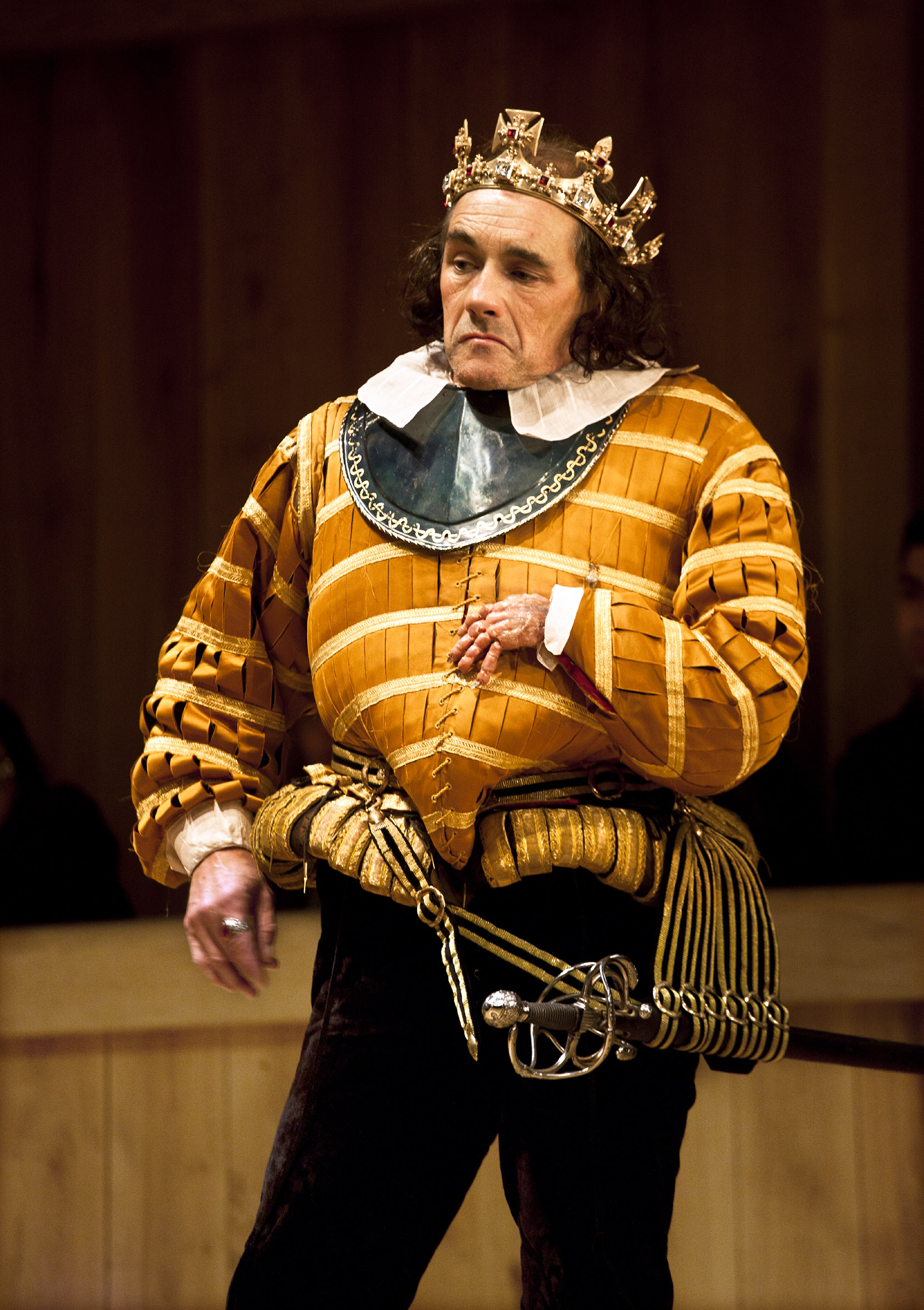 Farinelli and the King. A witty and moving new play is a timely reminder of just why art matters
Farinelli and the King. A witty and moving new play is a timely reminder of just why art matters
Jerusalem. Rylance is unforgettable as Johnny Rooster Byron in Jez Butterworth’s smash Royal Court hit
The BFG. Rylance lends moments of the sublime to standard issue Spielberg
La Bête. Rylance dazzles in astonishing opening monologue, but this callow play coasts on the performances
Nice Fish. Rylance is waiting for cod-ot in this absurdist West End trifle
Twelfth Night/Richard III. Rylance doubles up as Olivia and the hunchbacked king (pictured above) for Shakespeare's Globe
PLUS ONE TURKEY
Much Ado About Nothing. Rylance Old Vic staging of Shakespeare's romantic comedy with elderly leads gets lost in translation
OVERLEAF: CLAIRE FOY’S CV
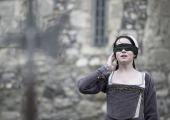

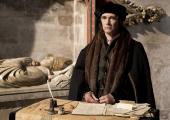

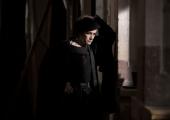
 Where occasion demands Rylance's Cromwell can show a different side: he swears at ambassadors, is stern with Protestants, plays the loving paterfamilias at home and, in the showdown held back until the climax of the episode, even boldly faces down
Where occasion demands Rylance's Cromwell can show a different side: he swears at ambassadors, is stern with Protestants, plays the loving paterfamilias at home and, in the showdown held back until the climax of the episode, even boldly faces down  The plot, for those who have somehow dodged Mantel and countless other versions of the birth of the Church of England, began with the downfall of Wolsey. The cardinal had failed to secure a papal annulment of the king’s first marriage. Cromwell thus entered his service at the wrong moment – even the house musician had jumped ship to play for Anne Boleyn. Things were no better at home: the plague claimed his wife (Natasha Little, a bit modern) and two of his children, rendering him paterfamilias of a much reduced household. And yet he used the patronage of the Cardinal to make himself known – and potentially indispensable - to both Anne and Henry.
The plot, for those who have somehow dodged Mantel and countless other versions of the birth of the Church of England, began with the downfall of Wolsey. The cardinal had failed to secure a papal annulment of the king’s first marriage. Cromwell thus entered his service at the wrong moment – even the house musician had jumped ship to play for Anne Boleyn. Things were no better at home: the plague claimed his wife (Natasha Little, a bit modern) and two of his children, rendering him paterfamilias of a much reduced household. And yet he used the patronage of the Cardinal to make himself known – and potentially indispensable - to both Anne and Henry.
